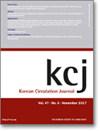Beta Blockers in Contemporary Cardiology: Is It Better to Cast Them Out?
IF 3
3区 医学
Q2 CARDIAC & CARDIOVASCULAR SYSTEMS
引用次数: 0
Abstract
Beta blockers are one of the commonest prescription drugs in medicine and they have been thought to revolutionize the treatment of heart failure (HF) with reduced ejection fraction (HFrEF) in the last century. In addition to HFrEF, they are prescribed for a variety of diseases in cardiology from hypertension to HF, angina, and stable coronary artery disease (CAD). The increased prescription of beta blockers in conditions like HF with preserved ejection fraction (HFpEF), and stable CAD may be doing more harm than good as per the data we have so far. The available data shows that beta blockers are associated with increased stroke risk and atrial fibrillation (AF) in hypertension and in patients with HFpEF, they have been associated with decreased exercise capacity. In patients with stable CAD and patients with myocardial infarction with normal systolic functions, beta blockers don't offer any mortality benefit. In this article, we critically review the common indications and the uses of beta blockers in patients with HFpEF, CAD, hypertension and AF and we propose that beta blockers are over-prescribed under the shadow of their beneficial effects in patients with HFrEF.当代心脏病学中的β受体阻滞剂:淘汰它们更好吗?
β受体阻滞剂是医学界最常见的处方药之一,在上个世纪被认为是治疗射血分数降低型心力衰竭(HF)的革命性药物。除了射血分数降低性心力衰竭(HFrEF),β受体阻滞剂还可用于治疗心脏病学中的各种疾病,包括高血压、心力衰竭、心绞痛和稳定型冠状动脉疾病(CAD)。根据我们目前掌握的数据,在射血分数保留型心房颤动(HFpEF)和稳定型冠状动脉疾病(CAD)等情况下,β受体阻滞剂处方量的增加可能弊大于利。现有数据显示,β受体阻滞剂与高血压患者中风风险增加和心房颤动(AF)有关,而对于射血分数保留的心房颤动(HFpEF)患者,β受体阻滞剂与运动能力下降有关。对于收缩功能正常的稳定型 CAD 患者和心肌梗死患者,β 受体阻滞剂对死亡率没有任何益处。在这篇文章中,我们认真回顾了β受体阻滞剂在高频心衰、冠状动脉硬化、高血压和房颤患者中的常见适应症和用途,并提出在β受体阻滞剂对高频心衰患者有益的阴影下,β受体阻滞剂被过度处方。
本文章由计算机程序翻译,如有差异,请以英文原文为准。
求助全文
约1分钟内获得全文
求助全文
来源期刊

Korean Circulation Journal
CARDIAC & CARDIOVASCULAR SYSTEMS-
CiteScore
4.90
自引率
17.20%
发文量
103
期刊介绍:
Korean Circulation Journal is the official journal of the Korean Society of Cardiology, the Korean Pediatric Heart Society, the Korean Society of Interventional Cardiology, and the Korean Society of Heart Failure. Abbreviated title is ''Korean Circ J''.
Korean Circulation Journal, established in 1971, is a professional, peer-reviewed journal covering all aspects of cardiovascular medicine, including original articles of basic research and clinical findings, review articles, editorials, images in cardiovascular medicine, and letters to the editor. Korean Circulation Journal is published monthly in English and publishes scientific and state-of-the-art clinical articles aimed at improving human health in general and contributing to the treatment and prevention of cardiovascular diseases in particular.
The journal is published on the official website (https://e-kcj.org). It is indexed in PubMed, PubMed Central, Science Citation Index Expanded (SCIE, Web of Science), Scopus, EMBASE, Chemical Abstracts Service (CAS), Google Scholar, KoreaMed, KoreaMed Synapse and KoMCI, and easily available to wide international researchers
 求助内容:
求助内容: 应助结果提醒方式:
应助结果提醒方式:


